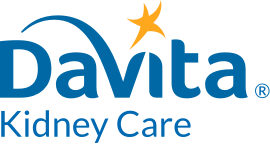
Tips to Maintain & Improve Kidney Health
March was National Kidney Month, and at Northeast Ohio Nephrology Associates we advocate for the best kidney health possible every month! There are countless things that anyone can do to maintain and improve their own personal kidney health. Many of these habits and practices will also serve to improve overall health, so it’s definitely worth investing the time to learn more.
The Kidneys’ Role In Your Body
Small organs that do so much for your wellbeing, kidneys are each only about the size of a closed fist, located on either side of your spine in roughly the middle of your back. They’re part of your body’s filtration system, processing roughly 40 gallons of fluid every day through thousands of nephrons, removing waste and excess fluid out of your blood and moving them along to be expelled. Beyond this already vital role, kidneys also make vitamin D more bioavailable; release key hormones; and help to regulate pH, blood pressure, and red blood cell production. Potassium and calcium are important minerals for life, and the kidneys also help to keep the correct levels of these elements in the blood.
Clearly, a problem with your kidneys will affect your overall health and wellbeing. Damaged kidneys will not function properly, and may cause fluid to build up in your body, and waste may accumulate in your blood. Kidney disease can result from acute injury or poisoning, but this typically is a condition that develops over time and often goes undetected until it is quite serious.
Once kidneys are damaged, other systems and organs can be negatively affected as well. If the situation progresses, it could lead to kidney failure and dialysis or even a kidney transplant. However, unlike some illnesses, a problem with your kidneys can go undetected for a long time, since the symptoms are often general and may not prompt you to get checked out until they’ve already reached a critical stage.
So let’s better understand how to take care of our kidneys, and learn specific ways to prevent illness while improving kidney health.
1. Monitor Blood Pressure
Blood pressure that is too high over time can lead to kidney damage. Kidneys help to filter the blood, but if the pressure is too great, blood vessels in the kidneys can become narrow and constricted and they aren’t able to work as well. Lifestyle and diet changes along with medication are common ways to achieve and maintain a lower blood pressure. Always work with your healthcare provider to find the best and safest methods for you.
2. Exercise Regularly
The more researchers learn about exercise, the more they realize how good it is for every single body organ and system. The kidneys are no exception. Regular, weekly exercise totaling at least 150 minutes can help to reduce risk factors that put you in line for kidney problems, like high blood pressure and diabetes. Exercise can be any number of aerobic activities and should also include some sort of resistance training, appropriate to your current abilities.
3. Manage Blood Sugar
When blood sugar levels are high, kidneys are forced to work harder to filter blood. They can become taxed with the prolonged workload and the filtration mechanisms within the kidneys can be severely damaged. An individual with diabetes can work with their healthcare provider to create a plan to keep blood sugar levels in check. Regular monitoring is important, and even those without a diabetes diagnosis should be mindful of eating balanced meals and snacks frequently enough to prevent extreme spikes and drops in their blood sugar, which can lead to damage over time.
4. Eat a Balanced Diet
A balanced diet can vary from one person to another, but many experts agree that a diet rich in whole foods and low in ultra-processed foods is a good place to start. Removing refined sugars, reducing sodium, and limiting fried foods can help to achieve this goal. Be extra aware of the ingredients of foods eaten, as sugar and salt are “hidden” in many common packaged and prepared foods. High quantities of phosphorus, potassium, and animal protein can also be problematic. It is best to work with a registered dietitian to find the best protocol for your specific dietary needs.
5. Focus On Hydration
Kidneys are constantly processing liquid in the body and filtering waste to keep the body healthy. Regular and consistent fluid intake is vital to keep kidneys functioning well. Water is a superior fluid, as it is free from sugar, sodium, and caffeine and can help the kidneys to better filter these and countless other substances. You can work with a healthcare provider or dietitian to discover the ideal ratio of water for your personal hydration needs.
6. Quit Smoking
Smoking damages the cardiovascular system, including the heart and blood vessels. This can ultimately lead to poor blood flow to the kidneys, resulting in kidney damage. However, as soon as someone stops smoking, the risk for kidney disease (and countless other ailments) immediately drops.
7. Limit Medication Use
Prescribed medications that may have an adverse effect on the kidneys are taken under a doctor’s supervision, and tests can be done to monitor overall kidney function. Over-the-counter (OTC) medications are not supervised, but that does not mean they are not harmful. OTC medications like ibuprofen, naproxen, and other commonly used NSAIDs can lead to kidney damage if taken for several days in a row, especially if someone already has known kidney issues.
8. Limit Alcohol Consumption
Clearly, any liquid that goes into the body will have to be filtered, and alcoholic drinks can be particularly hard on the kidneys. Regularly drinking more than four drinks a day (the definition of heavy drinking) is known to greatly increase the risk of developing chronic kidney disease. If drinking is paired with smoking, the risks are even higher. Heavy drinking can also lead to weight gain, further taxing the kidneys.
9. Make Sleep A Priority
Like exercise, rest is vital for every body system to work its best. Kidneys are regulated in part by the sleep-wake cycle, so adequate sleep is vital for good kidney health. Getting enough sleep can also contribute to the energy needed to exercise, can help to improve blood pressure, and can aid in appetite control, all of which ultimately help the kidneys.
10. Be Alert to Symptoms
Being in tune with your body will allow you to notice abnormalities and even subtle changes that could point to kidney damage or even kidney disease. Keep an eye out for these symptoms:
-
Frequent nausea and vomiting
-
Excessive fatigue paired with trouble sleeping
-
Unusual cramps, aches, and swelling, especially at night
-
Tight, dry, and itchy skin
-
Changes in urine color, quantity, and frequency, often accompanied by discomfort
-
Sharp reduction in or loss of appetite
-
Development of other chronic conditions, like high blood pressure or diabetes
-
Mental fatigue and difficulty concentrating
-
Unresolved or chronic urinary tract infections
Working with a healthcare provider will enable you to receive necessary testing and be screened for kidney disease. If you fit the risk profile, it is important to keep up with regular monitoring, even if you do not currently have a problem with your kidneys. This is especially true since early kidney disease can be hard to detect based on observed symptoms alone. Staying proactive and aware of your health is the best medicine there is.
11. Get Tested For Kidney Disease
Individuals who already have diabetes and/or high blood pressure should be tested for kidney disease. This is the best and most reliable way to catch damage before it becomes critical. Those who fit other risk factors, like obesity, family history of kidney or cardiovascular problems, recurring kidney stones, or being 60 years old or older should also be tested regularly. Blood and urine tests are commonly done to assess the health of your kidneys. Even if you do not fit typical risk criteria, if you notice any of the above-listed symptoms, it is a good idea to speak with your healthcare provider and rule out potential causes to get ahead of or prevent future damage.
Your Local Nephrologists in Akron, Ohio
At Northeast Ohio Nephrology Associates, Inc. we are here to help individuals dealing with chronic kidney conditions. Our skilled nephrology doctors can help to develop personalized treatment plans and provide cutting-edge therapy options, all while assisting with practical needs, like lifestyle modification, education, and patient support. Contact us today to learn more about our services–together we can get you on the path to better kidney health!
Our Affiliates
Contact Us
(*) - Required field








